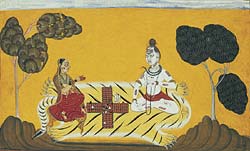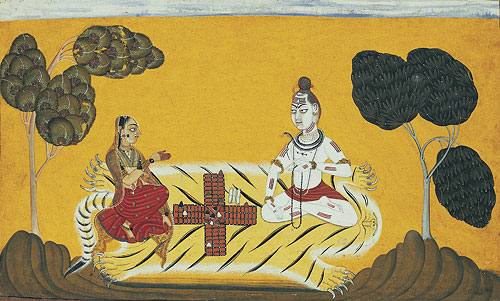Boards for pachisi are usually made of four lengths of cloth attached to the sides of a central rectangle. Certain squares on each arm, usually three in number, are important for the play of the game, and are crosscut accordingly. Pachisi cloths are sometimes found with a pocket at the back to hold the pieces, or ghotis, as well as the dice. The whole board can be folded up neatly, keeping everything safe and being convenient to store or carry.
The underlying game is a classic race game, in which each of the four players competes to send his men down the center of his “arm” from the middle, counterclockwise around the perimeter, and back to the starting point. Skillful deployment of throws allows blocking of the enemy and “killing” opposing pieces during the race: pieces can be knocked off, and are then obliged to re-enter again from the beginning. Pachisi is a fast-moving and complex game, often considered addictive, in which experience and quick-wittedness are useful assets. A great strength of the game is that multiple scores can be split to the player’s advantage; experienced players decide on strategy and make their moves with bewildering speed.






